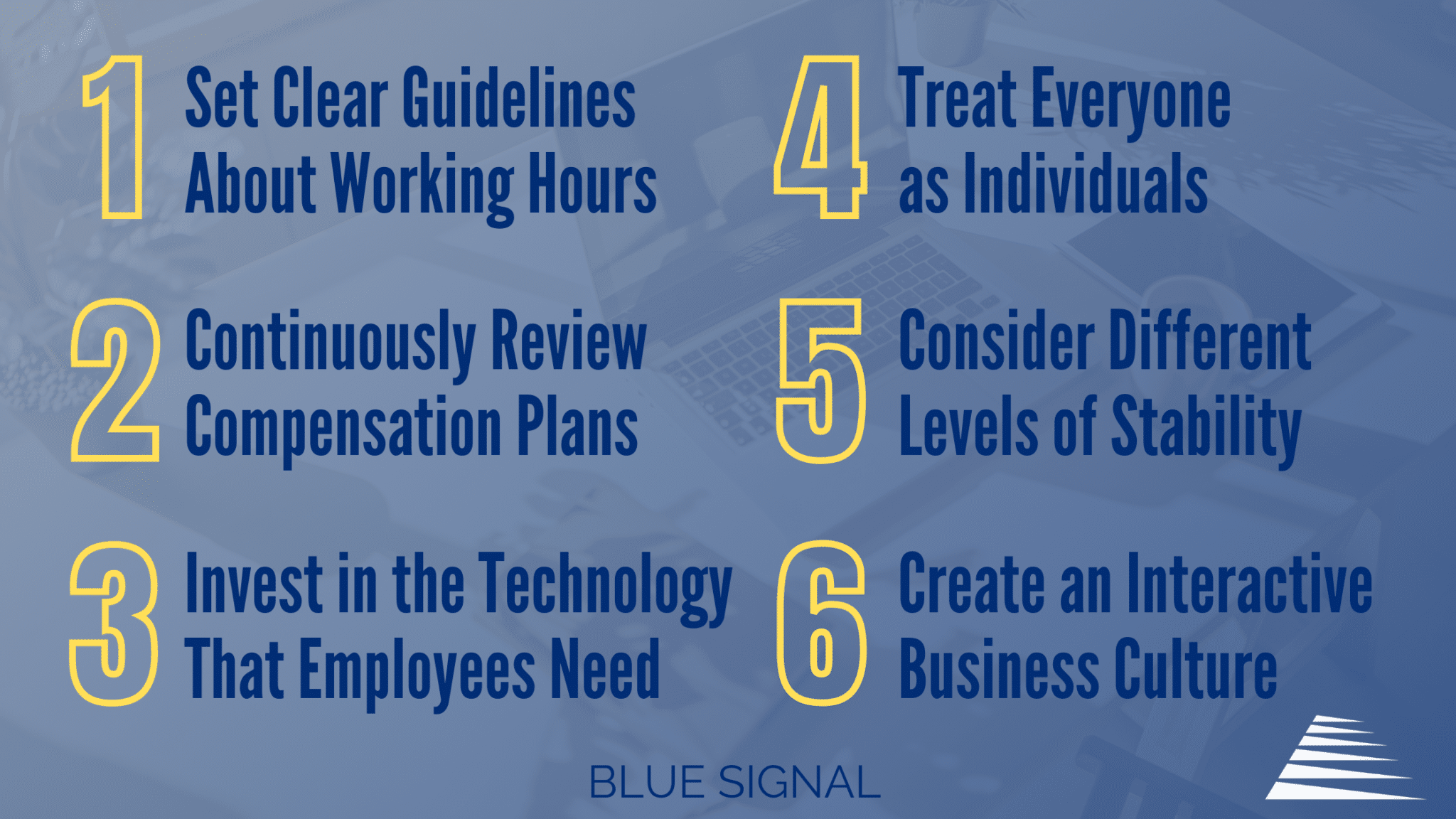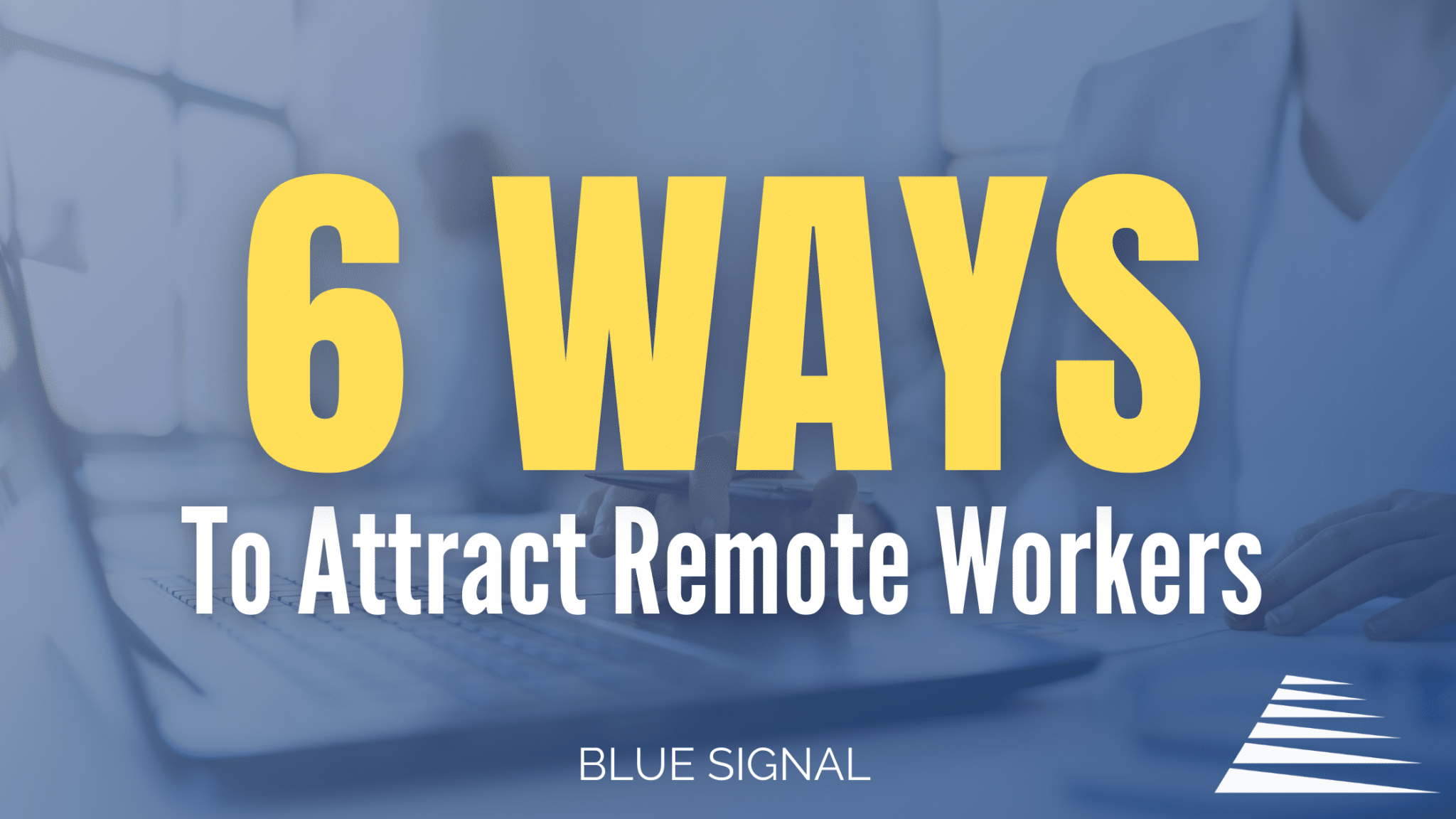COVID-19 has forever changed the workplace in addition to how, when, and where people work. Companies have come to the realization that remote work is not just smart, strategic, and sustainable, but it improves their bottom line and provides benefits to their overall staff.
Before the pandemic, only 5.2% of the U.S. workforce worked from home full time. Today 58% are working remotely. According to a recent FlexJobs survey, 65% of 2,000 pandemic remote workers would prefer to stay fully remote after the pandemic, and 58% say they would “absolutely” look for a new job if they weren’t allowed to continue working remotely in their current position.
Having a significant number of “work from anywhere” employees brings new challenges for benefits design and administration. In addition to traditional benefits, like health insurance and vacation time, remote workers and job hunters seeking remote work opportunities are adding items to their checklist of qualities they’re looking for in a new job. If you plan on hiring remote workers for your team, follow these 6 tips to attract new talent.
1. Set Clear Guidelines About Working Hours
Since remote workers don’t necessarily have to be living near a home office location, businesses can hire candidates from different time zones. This is great for sourcing talent outside of the local pool of candidates. However, that does open the door to another set of problems, specifically ensuring coverage during hours of operation. Managers may find candidates that have a flexible schedule and can wake up early or stay up late in other time zones to meet with a team located somewhere else, but this might not always be the case.
For organizations to stay competitive, leaders need to partner with their Human Resources teams to establish a clear set of rules regarding when people can and should be working online. It’s not just for employees based in different time zones, flexible working hours are also becoming relevant for job hunters. They want to be able to pick up their kids from school or make appointments during the day. Organizing clear expectations surrounding flex time can help companies attract the best talent.
2. Continuously Review Compensation Plans
Compensation, pay, earnings, they’re all the same thing: money. People still need to make a good wage in order to survive. With prices rising on everyday items, as well as housing and food, pay is something all job hunters are watching. Properly compensated employees are key to a company’s success.
Although there are many factors that go into how employees are paid, businesses that take pay away from employees are often tossed into the people’s court of opinion. For instance, DoorDash received negative press after the company took tips away from their delivery drivers. Google also received backlash after cutting pay for their remote workers.
In order to avoid risking an organization’s reputation by shortchanging employees, companies need to review their compensation plans periodically to ensure that they meet the standards of the current economic climate. As many states raise the minimum wage, remote workers are able to determine the level of pay they should receive for their work.
3. Invest in the Technology That Employees Need
Aside from proper pay, candidates need the right tools to do their work. Individuals shouldn’t be expected to outfit themselves with the technology they need to do their job, so companies need to keep the cost of technology in mind when they establish a budget for their remote workers.
If in-office staff need two monitors for doing their work, then remote workers should be offered this option as well. If an individual needs a Wi-Fi booster in their home, that’s something else offices would normally provide for in-person workers, and need to provide for remotes as well. There is a baseline that managers can set for what will and will not be provided to their employees. This should be established by management so that everyone is held accountable.
For remote workers, there needs to be a technology support system. Leaving them high and dry with a broken device can lead not only to frustration but possible turnover. A job seeker may ask a hiring team about their technology support for remote work in an interview, and having prepared answers will help give that person an understanding of what they can expect from the role.

4. Treat Everyone as Individuals
In today’s climate, job seekers are digging deeper and looking beyond pay, technology, and schedules when it comes to making a career move. They want to know how they’ll be treated as an individual. It can be easy in a remote setting to group everyone together in endless meetings and not touch base with people for one-on-one sessions. However, this can cause problems for both employers and employees.
Each person on the team has a unique set of expectations, concerns, and experiences. At the same time, each person has their own way of doing things and interacting with other team members. Managers need to consider that much like a traditional office setting, remote teams need to have individual sessions to get people’s perspectives. This isn’t just for performance conversations or project check-ins; this can also be a way for leadership to gauge how effective they are supporting their teams and discover what the company can be doing better for employees. After all, individuals are what really power successful businesses – and we should treat them as such.
5. Consider Different Levels of Stability
Everyone has their own unique work style and a preference in regard to how much they want to work. Some employees thrive working multiple jobs, while others prefer to work a single, steady nine-to-five. Companies need to think about how their current job openings can meet the standards of different types of remote workers. As flexibility and freedom become more important to new hires, businesses need to rethink their job descriptions.
Perhaps it’s breaking one position into a few that can be outsourced to freelancers. Maybe it’s combining two different part-time jobs into one for a full-time position. Workers are being more thoughtful in their approach to returning to work, so investigating open slots to find these opportunities before making new hires will help companies operate more efficiently in the long run. Recall that these openings are meant for remote workers so consider those unique requirements as well for attracting the best person for the position.
6. Create an Interactive Business Culture
All work and no play doesn’t make the job any fun, and that’s something worth considering when hiring remote employees. How will you build a culture around people who are located around the globe? Will you video conference with everyone daily? Are people going to have to report to the office once a month?
Knowing the answers to these questions will help organizations build a collaborative and fun virtual work environment. When potential candidates are reviewing a business, they want to know the values of it, and how everyone interacts with one another. While it is quite different pulling off culture in a completely digital world, there are many ways to succeed in doing so. Whether it’s an in-person event or a slated video conference every month, take time to relax with your team rather than talk shop.
Much like businesses would’ve hosted in-office events like holiday parties or other celebrations, leaders need to think about translating this into the virtual world. Virtual events build comradery within a team and give the opportunity for people who don’t normally interact with one another the chance to do so. New hires rely on these events in order to network and feel part of the company. When hosting these types of events, photograph them to showcase on social media and other channels, so job seekers can see an insider’s view too.
Job seekers are looking for many things when searching for a new position. But as remote workers, companies need to get creative and strategic with their offerings in order to stand out. By following the six ideas mentioned above, organizations can successfully pull in the best talent possible for their teams, and more effectively retain their remote workers. If you need additional help recruiting top remote talent, reach out to Blue Signal today.
About Our Contributor, Sara Carter:
Sara is the co-founder of Enlightened Digital, entrepreneur, and Bostonian. She spends her days writing code, chasing her children and/or dog, and perfecting her brownie recipe.
About Enlightened Digital:
Enlightened Digital is a digital magazine dedicated to the top tech and business news, updates, and analyses from around the web. Their aim is also to explore how these changes affect business growth and professional development for women. They believe that delivering objective facts and figures on the newest releases and events in the tech world no longer suffices to keep consumers informed. As new technology and updates hurl businesses faster and faster into a future that seems less predictable, Enlightened Digital will try to make sense of not only what is happening, but why, and how it impacts our lives.

